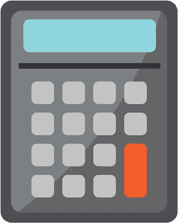We've been talking about inflation and what it means for real estate.
What else do you need to know about inflation?
In the last month, the Fed has said we're going to do away with calling inflation transitory. Previously, they were using the word transitory to talk a lot about inflation, indicating that we were going to get past the current supply chain issues. Recently, they've dropped that word said, You know, what, we don't think it is transitory.
They're essentially acknowledging that inflation is real, and that it's not going away. In fact, the latest data point that we got from Labor Department had inflation at nearly 7%, which is the highest we've seen since 1982, 38 years ago. It's scary stuff.
In light of these recent comments, do we anticipate the Fed will be able to hike rates high enough to stop inflation?
They say they will. The Fed actually didn't have the nerve to do this in the late '70s, and they had to ratchet it up to 20-22% in the early '80s, to finally kill the beast of inflation. So there's a question of whether we have the political will to do it, as far as raising rates so high, and there's the psychological factor.
Inflation becomes a self fulfilling prophecy.
People expect inflation, so then they expect to get higher salaries, and meanwhile, people come to accept that fuel is going to go in price, rents are going to go up in price. Once people accept it psychologically, they're more willing to pay more and more, which means that people that are selling stuff are going to try to ratchet up prices. It's very hard to unwind that psychology.
We know, inflation generally doesn't go up for 24 months and then go back down. I'm not aware of any instance in history where inflation was short lived. It tends to go up for a long time and then maybe flatten out for a long time. And I think we're just at the beginning of a long term cycle upward and inflation.
In light of all that, let's get to the question that pretty much everyone's wondering, what does all that mean for real estate investors?
Ironically, it's kind of good news for real estate investors. Real Estate, along with hard goods like commodities, are some of the best places to store your dollars. But in an inflationary environment, when you look back at time, and you see what assets have done well during inflation, these are the asset classes that do well.
Rent, which is what we're investing in, is one of the biggest components of inflation. If inflation is going up, that means our rents are going up. Meanwhile, our biggest expense – mortgage – is a fixed number. So, we tend to be winners in the inflationary environment. It's one of the reasons that real estate is one of the best places to put your money in general.
If you want to learn a little bit more about how to calculate inflation, as well as its effects on real estate investing, please visit themichaelblank.com/inflation.

